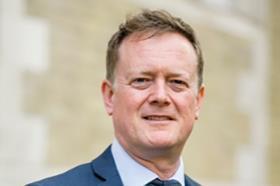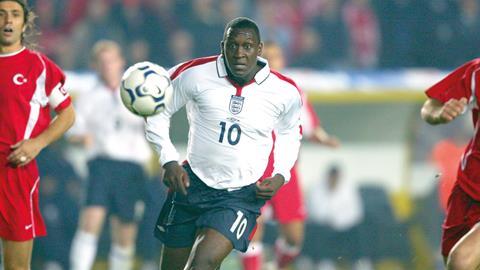As one of the leading Premier League strikers of his generation, Emile Heskey was widely admired as an unselfish player who created opportunities for teammates. Over the course of his 18-year professional career, he scored 110 goals in 516 Premier League appearances and won 62 England caps. Recently, however, the former Aston Villa, Liverpool and Leicester City footballer’s actions off the field – specifically his longstanding battle with HM Revenue & Customs (HMRC) – have been the subject of less favourable commentary.

Last month, Heskey was reportedly ordered to pay legal costs totalling £194,795 by specialist costs judge Mark Whalan at a High Court hearing. This emerged following a lengthy and complex legal action against Heskey by HMRC in relation to an unpaid tax bill of £1.64m which started in 2017. Proceedings were launched against him over 15 penalty notices issued from 2005 onwards. A High Court trial scheduled for November 2019 was averted, however, after he admitted liability for the outstanding debt.
Heskey had been involved with a celebrity investment scheme run by a financing company which backed film productions, into which well-known clients placed stakes of at least £100,000. Many of those backers, including bankers from Goldman Sachs, Lloyds, HSBC and Credit Suisse, are now suing the firm’s tax-relief scheme, alleging that they were misled.
The court was told that additional interest may yet be calculated and added to this cost figure, which Whalan described as ‘reasonable and proportionate’. Notably, Heskey did not attend the hearing and was not legally represented.
Given the very large amount of tax at stake, it is no surprise that the judge deemed the fees to be proportionate. The issue of proportionality is not only commensurate with the amount at issue, but also with the complexity of the dispute, the importance to the parties and other factors.
Inevitably, those factors cut both ways. Even in a case where the amount involved makes the legal spend appear proportionate, the sums could still be regarded as being disproportionate if the case lacked the necessary level of complexity.
In my experience of cases such as this, accurately calculating the precise legal fees incurred by HMRC is invariably difficult and therefore often impossible to dispute. The government department has an army of in-house lawyers at its disposal.
When calculated by apportioning the relevant percentage of their state-funded salary, their hourly rates are well below both the legal market rate in private practice and the guideline figures usually allowed on assessment. Commonly, counsel also tend to work on reduced fees for HMRC.
Inevitably, if this legal spend had been secured in the open market, it is highly probable that the cost would have been significantly higher than the sum recovered. It would be interesting to compare Heskey’s legal costs with those of the government body in this example.
Taken at face value, it is hardly surprising that the total amount of costs was deemed to be proportionate given all of the above factors and potentially others which remain undisclosed. Given the result – and possibly that Heskey may now be acting as a litigant in person – it could be that his representation was somewhat stifled by lack of funds.
One might reasonably expect that a very successful former professional footballer would be in a position to pay a skilled legal team to run his case robustly. But that assumption may not be correct. In January 2024, it was widely reported that HMRC had filed a bankruptcy petition against Heskey in the High Court. Among his financial problems was the reported enforced closure of a bar in Cheshire which he ran with his wife, which was wound up by the courts with reported debts of £163,000. In such financially strained circumstances, his legal spend may not have been as significant as would have been anticipated.
It is perhaps relevant to the Heskey case that HMRC routinely chooses not to recover fees in disputes of public importance. In those instances, their decisions are based on the principle that it may be unfair for an individual taxpayer to bear this burden on a case that is also of wider public importance.
What can be inferred in this case, therefore, is that the department’s pursuit of costs implies that wider tax issues were not necessarily involved. Based on Whalan’s decision, and the fact that HMRC sought costs, some observers might assume either that Heskey’s position was untenable, or that his case potentially lacked sufficient merit. Or both.
At a time when the nation has once again been riveted by Euro 2024, it is hard not to feel a degree of sympathy for Heskey and the position in which he now finds himself. In the past, the media has devoted much coverage to celebrated players who lost their fortune as a result of more human frailties such as drink, drugs and gambling. By comparison, Heskey’s long-running battle with the tax authority seems rather more mundane.
It should be concluded that the only way to avoid such a disappointing end to an illustrious and very lucrative career is to undertake proper tax planning. Of course, this lesson applies far beyond the rarified world of highly paid sports professionals.
[Heskey was approached for comment].
Francis Kendall is director, costs lawyer and joint head of commercial at Kain Knight, London
































No comments yet